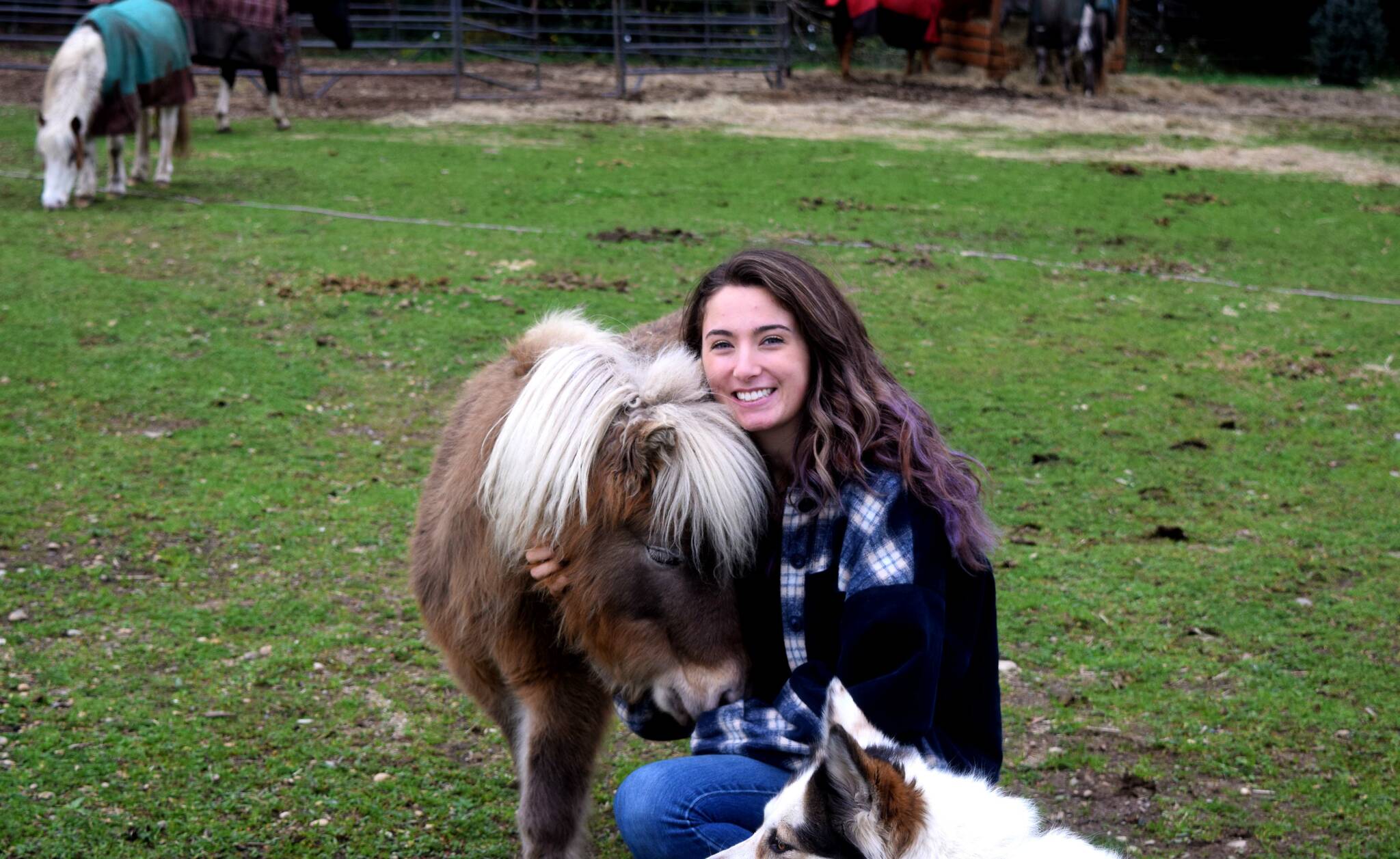Growing up in Fall City, Katie Berman has always worked with rescue horses, and knew it was something she wanted to do. But it was when she met Luna, a mare horse, at an Enumclaw auction that she was inspired to dedicate herself to auction horses.
Three years ago, Berman founded Kataluna Horse Rescue, a Fall City based nonprofit that works to rescue and rehabilitate slaughter-bound horses.
“I had no idea [Luna] was going to take me on such an incredible journey,” Berman said. “Here we are six years later. She’s the one who inspired me to create all this.”
Six years ago, Berman was still in high school, doing an assignment for a photography class when she first met her nonprofit’s namesake. She felt an instant connection to Luna, who was reluctant to be around humans.
“She was super shut down and didn’t want to say hi,” Berman said. “I just felt drawn to her.”
While sitting there, Berman noticed a couple of men, likely looking for a work horse, approached Luna and began harassing her, whistling and even smacking her with their hat to get her to turn around.
When the auction came later that day, Luna came out last, at an asking price of $300 — no takers. When the price dropped to a single $100 bill, the group of men’s hands shot up.
“It just broke my heart watching that. I was like ‘oh my gosh, she’s gonna end up with these people,’” Berman said. “I just had that gut feeling when you know it’s gonna be bad news.”
Although Berman had no intention of taking home a horse that day, her friend she was with at the time countered on her behalf. A bidding war ensued, and after some back and forth, Berman took Luna home for $350.
“To people who don’t know horses, they’re just animals,” Berman said. “People who know, know how truly special they are, how much of a mirror they can be to you. How much they teach you about yourself.”
Since then, Berman has frequented auction yards and feedlots looking for horses that are at risk of being taken and sold for slaughter.
Despite only being banned in four states, there are no active slaughter plants in the U.S. However, through a legal loophole, it is common for horses to be sold to slaughter houses in Canada and Mexico, where they are used for meat. In 2020, an estimated 35,000 horses, the majority of whom were still healthy, were sold across U.S. borders and slaughtered for human consumption, according to the Animal Welfare Institute.
The American Society for the Prevention of Cruelty to Animals said slaughter differs from humane euthanasia as it is a “brutal and terrifying end for horses” that “doesn’t prevent suffering.”
The practice has been long criticized by animal rights activists, and declined from the nearly 160,000 horses that were shipped and slaughtered nine years ago. Last May, a law banning the practice was introduced in the U.S. House of Representatives. It was introduced in the Senate in September.
Berman said each horse who ends up at her farm has a unique story. It can range from the horses having a behavioral or physical problem, being too old or too young, becoming a financial burden or needing extra help that owners don’t want to take on.
“I’ve seen really nice horses end up in situations you would never think they would,” Berman said. “I don’t think many people understand how many horses end up in a bad place as they do.”
When Berman brings horses to Kataluna, she trains them using a practice called Liberty Horsemanship, which she describes as similar to clicker training for dogs. The training method allows the horses to go at their own pace as they recover and learn to trust humans.
“It basically gives the horse the opportunity and choice to work with us rather than forcing them to do something they’re not ready for mentally or physically,” she said. “We make it a priority to put their needs first.”
Berman said her rescue is growing slowly and can always use more volunteers. Residents can also support the rescue by sponsoring an animal or making a monetary or wish list donation.
“The horses all end up here for a reason,” Berman said. “We can’t change the world for every horse, but we can change the world for one horse in particular. It all starts with one.”
To learn more, visit katalunahorserescue.org.


